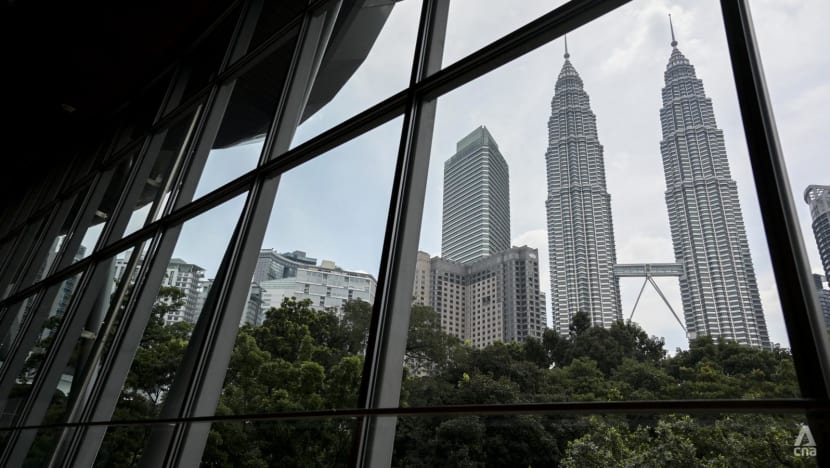Malaysia says multilateral power deal delayed by Thai politics, renewal expected next month

The Petronas Twin Towers as seen from the window of Kuala Lumpur Convention Centre. (Photo: CNA/Fadza Ishak)
KUALA LUMPUR: Thailand has delayed renewing a Southeast Asian multilateral power trade deal due to local political changes, Malaysia’s energy minister said on Friday (Oct 17).
The Lao PDR-Thailand-Malaysia-Singapore (LTMS) Project to supply hydropower from Laos via Thailand and neighbouring Malaysia is now expected to be renewed in November, Energy Transition and Water Transformation Minister Fadillah Yusof told Reuters.
Thailand's Prime Minister Paetongtarn Shinawatra was removed by the Constitutional Court in August, with Anutin Charnvirakul appointed the following month.
Malaysia is currently the chair of Association of Southeast Asian Nations (ASEAN) and Fadillah spoke to Reuters on the sidelines of the bloc's meeting of energy ministers on Friday.
"It's not put on hold, but because of the political changes in the (Thai) government...that's why there's a bit of a delay on Thailand's side," Fadillah said.
"November will be the signing and so the second phase of LTMS will be working after November, hopefully after they have signed that," he said, adding that Malaysia is already committed to it.
The Thai energy ministry did not immediately respond to a request for comment outside of business hours.
The LTMS project is a precursor to the broader ASEAN Power Grid (APG) initiative, which aims to interconnect all its ten member states and is widely seen as one of the main ways to cut Southeast Asia's growing reliance on fossil fuels for power generation.
“APG is the backbone of ASEAN. If we want to be one of the economic powerhouses in the world, we need energy,” he said.
Significant progress is also being made on the Borneo Power Grid, Fadillah added.
"By the end of this year, Sabah will be connected with Sarawak," he said, adding that West Kalimantan is already purchasing power from Sarawak, while Brunei’s connection is currently underway. The Philippines will also eventually join.
Malaysia is also reducing its reliance on coal and increasing renewable energy capacity, Fadillah said.
The country's power demand is forecast to rise 10 per cent and 8 per cent, respectively, in 2026 and 2027, driven by data centres and high demand industries, he added.
Separately, Laos' deputy energy minister told Reuters that the country is considering halting electricity supply to cryptocurrency miners, as it seeks to redirect domestic power to industries that contribute more to economic growth.















